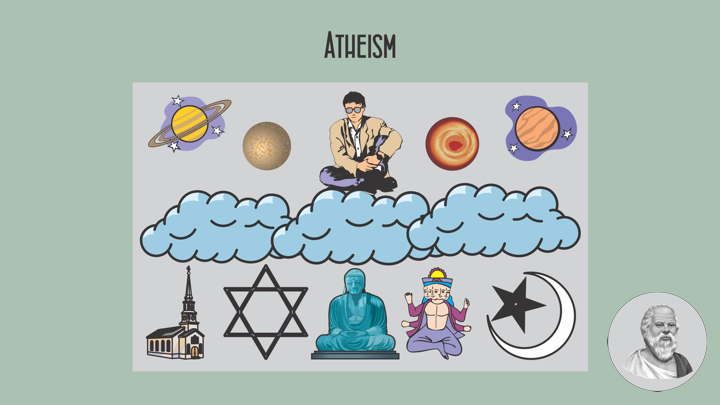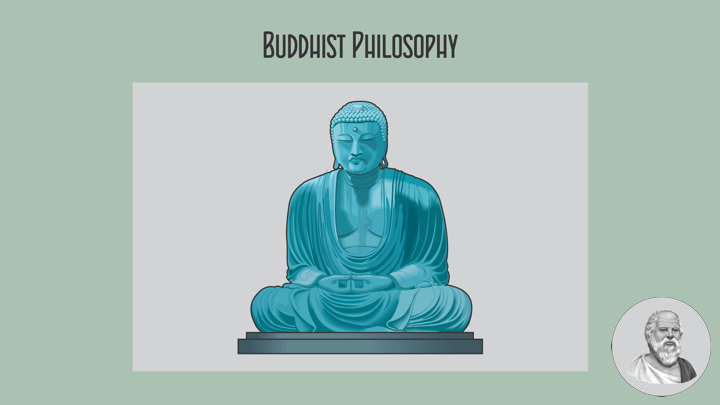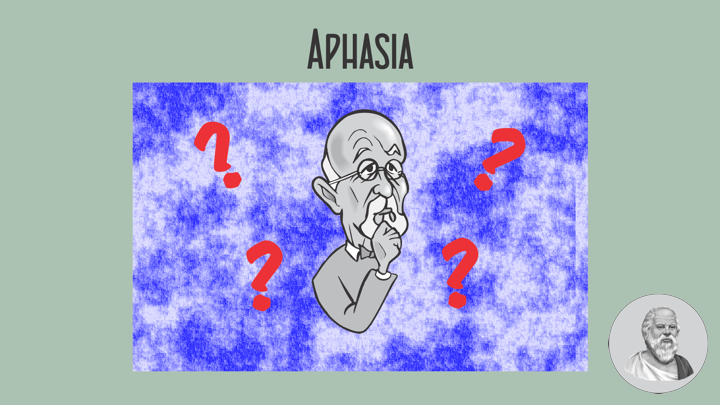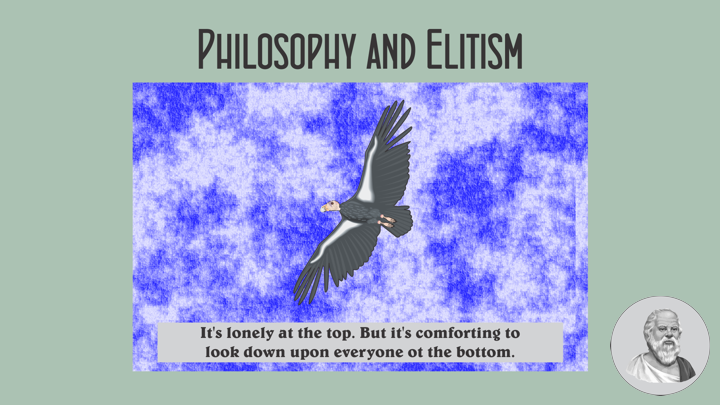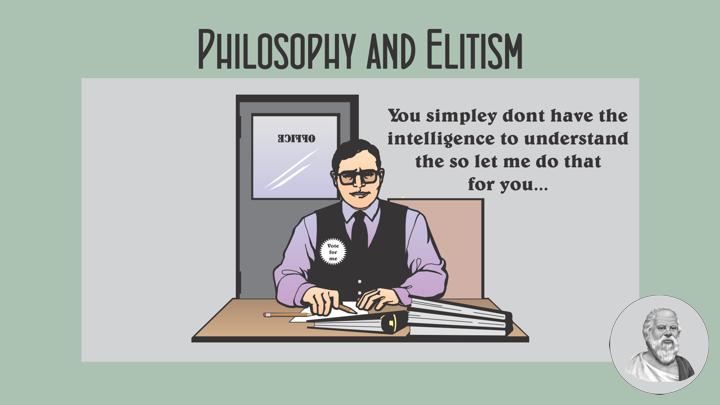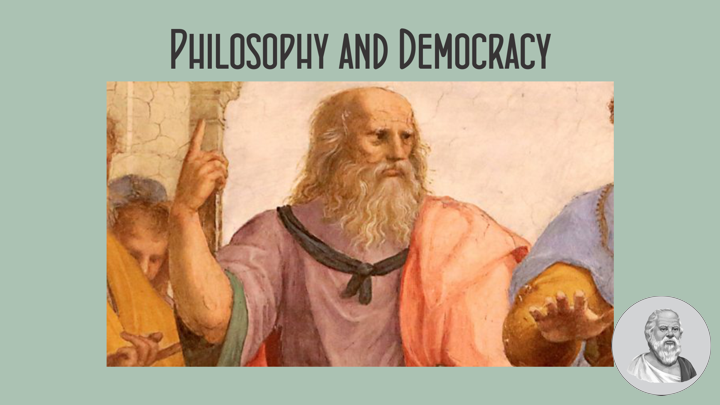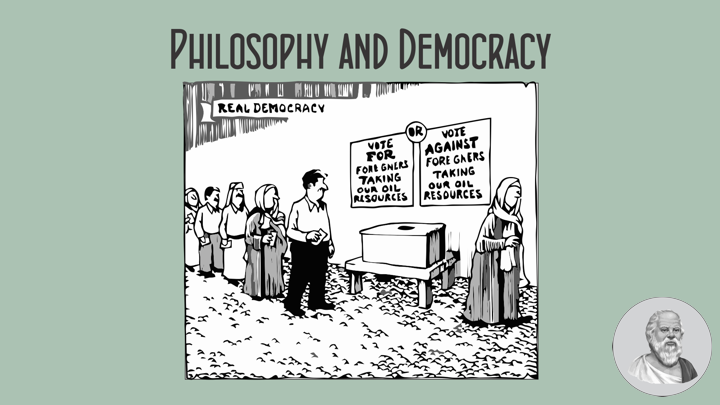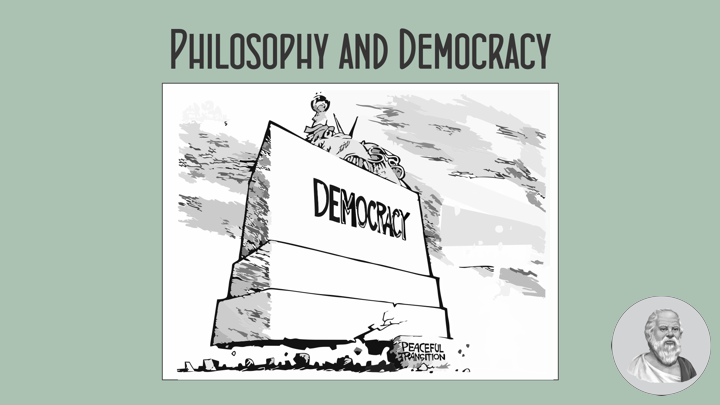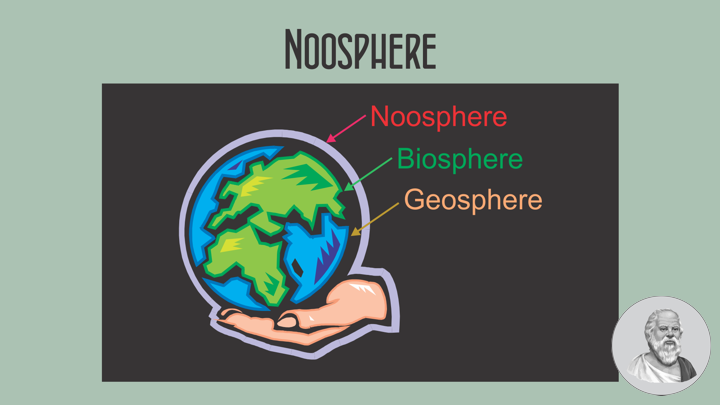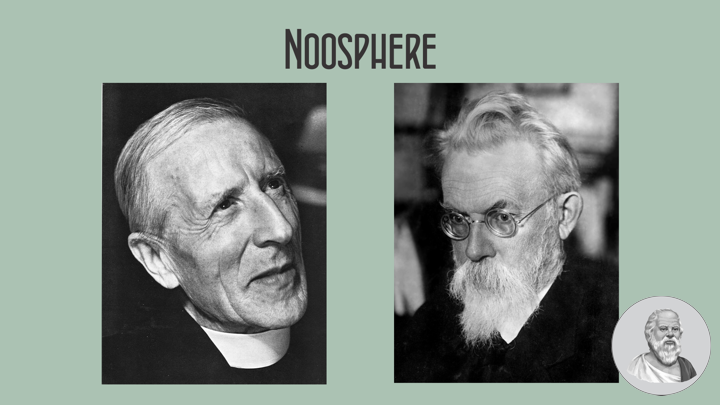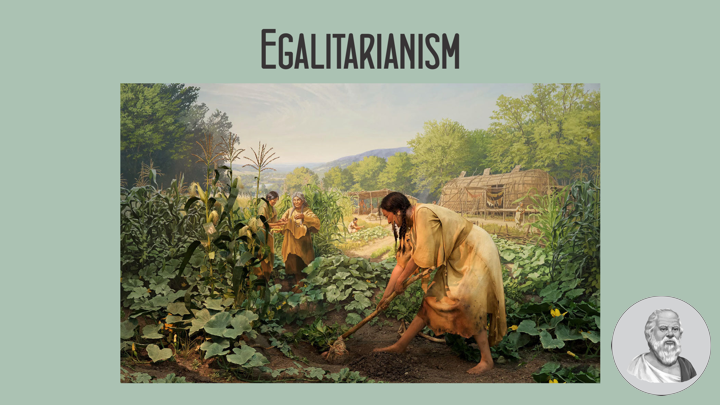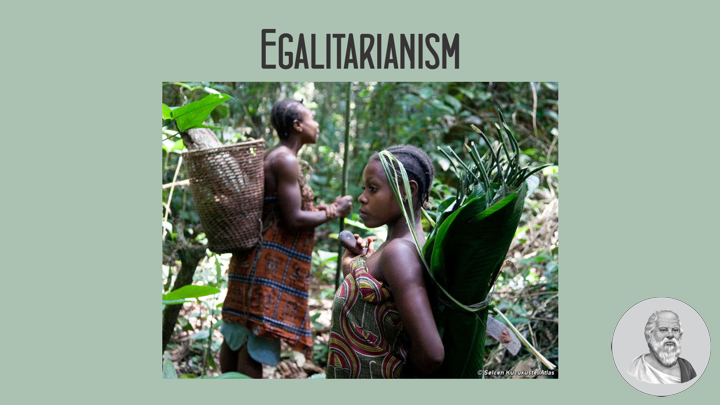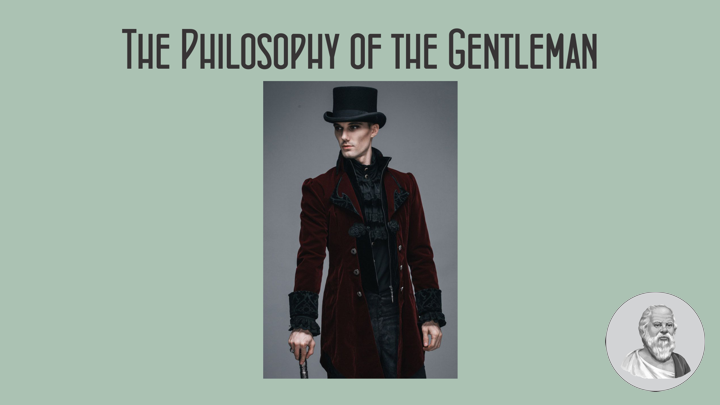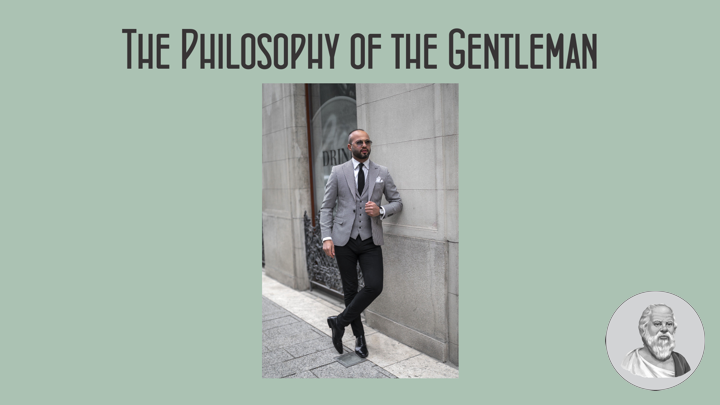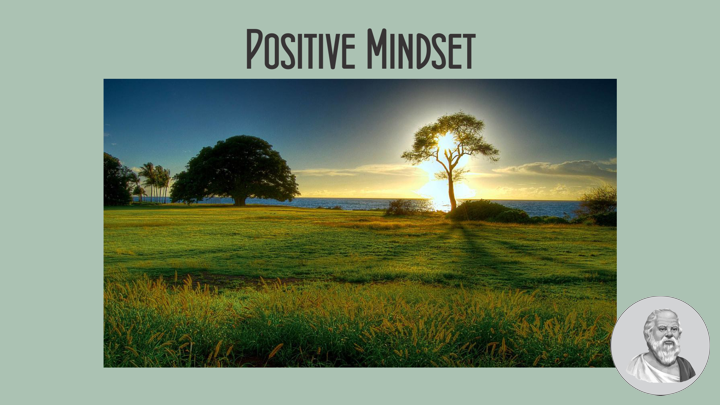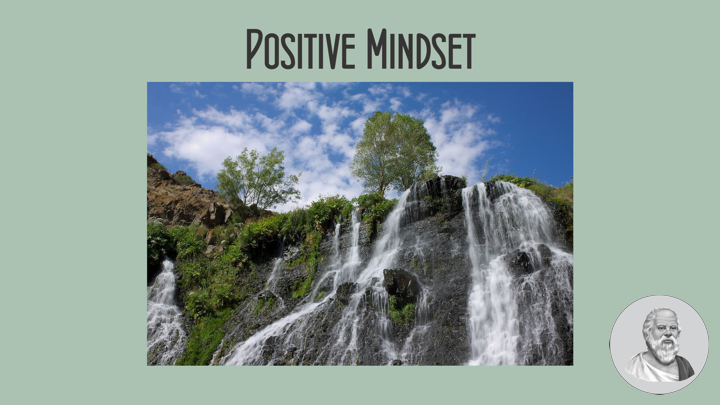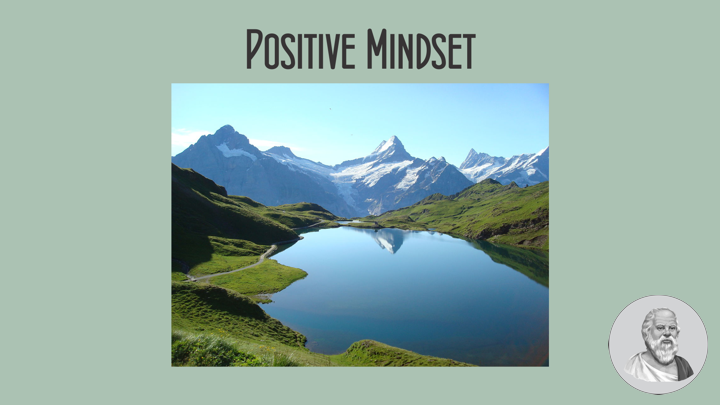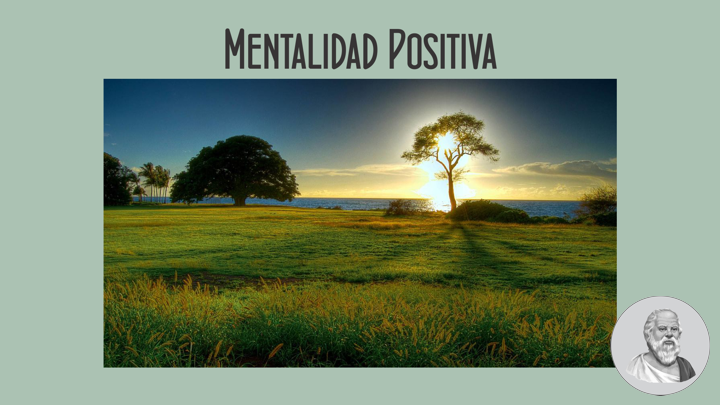Philosophy
Philosophy
——
#Spirituality #Philosophy #Atheism #WorkLifeBalance
——
——
Atheism
The term “Atheist” describes a person who does not believe that God or a divine being exists. Worldwide there may be as many as a billion atheists, although social stigma, political pressure, and intolerance make accurate polling difficult. For the most part atheist and they have argued that the evidence in favor of God’s existence is too weak, or the arguments in favor of concluding there is no God are more compelling.
Atheism, in the broadest sense, is an absence of belief in the existence of deities. Less broadly, atheism is a rejection of the belief that any deities exist. In an even narrower sense, atheism is specifically the position that there are no deities. Despite the fuzzy definitions, researchers are beginning to home in on the factors that influence whether someone believes. According to this line of thinking, people with stronger analytical abilities are more likely to be nonbelievers, since belief in a higher power requires having faith in something that can’t be proven. The flip side of that argument is that believers may be more inclined toward intuitive thinking trusting their guts that a god exists, even in the absence of hard evidence.
Atheism is not an affirmative belief that there is no god nor does it answer any other question about what a person believes. It is simply a rejection of the assertion that there are gods. Atheism is too often defined incorrectly as a belief system. To be clear: Atheism is not a disbelief in gods or a denial of gods; it is a lack of belief in gods.
Atheism is not a belief system nor is it a religion. While there are some religions that are atheistic, that does not mean that atheism is a religion. To put it in a more humorous way: If atheism is a religion, then not collecting stamps is a hobby.
Despite the fact that atheism is not a religion, atheism is protected by many of the same Constitutional rights that protect religion. That, however, does not mean that atheism is itself a religion, only that our sincerely held lack of beliefs are protected in the same way as the religious beliefs of others.
Science is based on the observation that the universe is governed by natural laws that can be tested and replicated through experiment. It serves as a reliable, rational basis for predictions and engineering. Like scientists, scientific skeptics use critical thinking to decide claims. They do not base claims on faith or other unfalsifiable categories.
Luc Paquin
——
#Spirituality #Philosophy #BuddhistPhilosophy #WorkLifeBalance
——
——
Buddhist Philosophy
Buddhism, philosophy that developed from the teachings of the Buddha, a teacher who lived in northern India between the mid-6th and mid-4th centuries BCE. Spreading from India to Central and Southeast Asia, China, Korea, and Japan, Buddhism has played a central role in the spiritual, cultural, and social life of Asia, and, beginning in the 20th century, it spread to the West. This entry concerns the historical individual, traditionally called Gautama, who is identified by modern scholars as the founder of Buddhism. According to Buddhist teachings, there have been other buddhas in the past, and there will be yet more in the future. The title “Buddha”, which literally means “Awakened”, is conferred on an individual who discovers the path to nirvana, the cessation of suffering, and propagates that discovery so that others may also achieve nirvana. This entry will follow modern scholarship in taking an agnostic stance on the question of whether there have been other buddhas, and likewise for questions concerning the superhuman status and powers that some Buddhists attribute to buddhas. The concern of this entry is just those aspects of the thought of the historical individual Gautama that bear on the development of the Buddhist philosophical tradition.
Four noble truths as preached by Buddha are that the life is full of suffering, that there is a cause of this suffering, it is possible to stop suffering, and there is a way to extinguish suffering. Eight fold Path as advocated by Buddha as a way to extinguish the sufferings are right views, right Resolve and Aspiration, right speech, right Action and Conduct, right livelihood, right effort right mindfulness and right concentration. In epistemology, the Buddha seeks a middle way between the extremes of dogmatism and skepticism, emphasizing personal experience, a pragmatic attitude, and the use of critical thinking toward all types of knowledge.
Mid-twentieth century saw the collaborations between many psychoanalysts and Buddhist scholars as a meeting between “Two Of The Most Powerful Forces” operating in the Western mind. Buddhism and Western Psychology overlap in theory and in practice. Over the last century, experts have written on many commonalities between Buddhism and various branches of modern western psychology like phenomenological psychology, psychoanalytical psychotherapy, humanistic psychology, cognitive psychology and existential psychology. We find something more nearly resembling psychotherapy.
Luc Paquin
——
#Spirituality #Philosophy #Aphasia #Supernatural #WorkLifeBalance #SelfAwareness #SelfKnowledge #SelfTranscendence #PositiveMindset
——
——
——
What is Aphasia?
Aphasia is a communication impairment that affects all aspects of language, including speaking, understanding speech, reading, and writing. Imagine going to a foreign country where you do not speak the language, or you only remember a few words from your high school or college language course. You would have difficulty saying what you mean, understanding what others were saying to you, reading the language, and writing things down. This provides a little insight into what it might be like to have aphasia.
Aphasia is caused by a brain injury, typically due to stroke, traumatic brain injury, or some other illness. Depending on the exact location of the brain injury, aphasia can manifest itself in many different ways. Some people with aphasia have more difficulty understanding what is said to them and reading than they do speaking. Other people with aphasia have more difficulty saying what they want to say but understand much of what is said to them. Sometimes aphasia is more severe and affects understanding, speaking, reading and writing quite broadly.
What Causes Aphasia?
Aphasia is usually caused by a stroke or brain injury with damage to one or more parts of the brain that deal with language. According to the National Aphasia Association, about 25% to 40% of people who survive a stroke get aphasia.
Aphasia may also be caused by a brain tumor, brain infection, or dementia such as Alzheimer’s disease. In some cases, aphasia is a symptom of epilepsy or other neurological disorder.
What Are the Types of Aphasia?
There are types of aphasia. Each type can cause impairment that varies from mild to severe. Common types of aphasia include the following:
- Expressive aphasia (non-fluent): With expressive aphasia, the person knows what he or she wants to say, yet has difficulty communicating it to others. It doesn’t matter whether the person is trying to say or write what he or she is trying to communicate.
- Receptive aphasia (fluent): With receptive aphasia, the person can hear a voice or read the print, but may not understand the meaning of the message. Often times, someone with receptive aphasia takes language literally. Their own speech may be disturbed because they do not understand their own language.
- Anomic aphasia: With anomic aphasia, the person has word-finding difficulties. This is called anomia. Because of the difficulties, the person struggles to find the right words for speaking and writing.
- Global aphasia: This is the most severe type of aphasia. It is often seen right after someone has a stroke. With global aphasia, the person has difficulty speaking and understanding words. In addition, the person is unable to read or write.
- Primary progressive aphasia: Primary progressive aphasia is a rare disorder where people slowly lose their ability to talk, read, write, and comprehend what they hear in conversation over a period of time. With a stroke, aphasia may improve with proper therapy. There is no treatment to reverse primary progressive aphasia. People with primary progressive aphasia are able to communicate in ways other than speech. For instance, they might use gestures. And many benefit from a combination of speech therapy and medications.
- Aphasia may be mild or severe: With mild aphasia, the person may be able to converse, yet have trouble finding the right word or understanding complex conversations. Severe aphasia limits the person’s ability to communicate. The person may say little and may not participate in or understand any conversation.
Aphasia Luc
I am been working on invention, innovation, expert, and consultant. Aphasia is a condition that robs you of the ability to communicate. It can affect your ability to speak. Aphasia typically occurs suddenly after a stroke or a head injury. He is stroke on September 2013. I could ever have a 2013-2016 is aphasia can understand language, but can’t speak. Although has this problem he has been working with various electronic projects, 3D animation, photography, video, art, jewelry, painting, digital prints, food, drink since then.
Luc Paquin
——
#Spirituality #Philosophy #PhilosophyElitism #Elitism #Supernatural #WorkLifeBalance #SelfAwareness #SelfKnowledge #SelfTranscendence #PositiveMindset
——
——
——
Philosophy and Elitism
While the concept of populism has been one of the most used and most contested social science concepts in recent years, the concept of elitism still is strangely underspecified. Yet even in the debate centering solely on populism, the idea that there is a significant other, a counterpart that populism is up against and vice versa, is clearly gaining ground breeding notions of anti-populism, technocracy, technocratic populism and the like.
Essentially, the arguments for this refusal were based on the following, the functioning of the capitalist state must be explained based on the objective links between this political institution and class structure, whoever controls, manages and occupies the main nodes of power within the state apparatus, the bureaucracy, regardless of social origin, faith or specific motivations, has no choice but to reproduce the objective function of the state, which consists of maintaining the social cohesion of a given social formation this is equally valid for any type of political regime, bourgeois democracy, military dictatorship, fascism, authoritarianism, in which those in command of the political administration of the state are sensibly different.
Again in both cases, this prevailing negative judgment has a point but is somewhat premature at the same time. Representative democracy, I argue, is inconceivable without political elites. And it would probably be much worse without the continuous reminder of the promise of democracy which populism provides. The pathologies entailed in both cases come with the inherent tendency to overstretch one aspect of democracy at the expense of others.
Elitism is the belief or notion that individuals who form an elite, a select group of people perceived as having an intrinsic quality, high intellect, wealth, power, notability, special skills, or experience, are more likely to be constructive to society as a whole, and therefore deserve influence or authority greater than that of others. The term elitism may be used to describe a situation in which power is concentrated in the hands of a limited number of people.
In political and sociological theory, the elite are a small group of powerful people who hold a disproportionate amount of wealth, privilege, political power, or skill in a group. This group includes bureaucratic, corporate, intellectual, military, media, and government elites who control the principal institutions and whose opinions and actions influence the decisions of the policymakers. The basis for membership of a power elite is institutional power, namely an influential position within a prominent private or public organization.
The elitism is historically associated with hereditary or ruling social class. In many states, the elitism included the upper class of people with hereditary rank and titles. Term elitism is sometimes also applied to other elites, and is used as a more generic term when describing earlier societies. Upper class in modern societies is the social class composed of people who hold the highest social status, usually are the wealthiest members of class society, and wield the greatest political power. According to this view, the upper class is generally distinguished by immense wealth which is passed on from generation to generation.
Because the upper classes of a society may no longer rule the society in which they are living, they are often referred to as the old upper classes, and they are often culturally distinct from the newly rich middle classes that tend to dominate public life in modern social democracies. According to the latter view held by the traditional upper classes, no amount of individual wealth or fame would make a person from an undistinguished background into a member of the upper class as one must be born into a family of that class and raised in a particular manner to understand and share upper class values, traditions, and cultural norms.
Luc Paquin
——
#Spirituality #Philosophy #PhilosophyDemocracy #Supernatural #WorkLifeBalance #SelfAwareness #SelfKnowledge #SelfTranscendence #PositiveMindset
——
——
——
——
Philosophy and Democracy
Plato was an Athenian philosopher. He is widely considered a pivotal figure in the history of Ancient Greek and Western philosophy, along with his teacher, Socrates, and his most famous student, Aristotle. Plato has also often been cited as one of the founders of Western religion and spirituality. Philosophy is a ladder that Western political thinking climbed up, and then shoved aside. Starting in the seventeenth century, philosophy played an important role in clearing the way for the establishment of democratic institutions in the West. It did so by secularizing political thinking, substituting questions about how human beings could lead happier lives for questions about how God’s will might be done. Philosophers suggested that people should just put religious revelation to one side, at least for political purposes, and act as if human beings were on their own, free to shape their own laws and their own institutions to suit their felt needs, free to make a fresh start.
Normative democratic theory deals with the moral foundations of democracy and democratic institutions, as well as the moral duties of democratic representatives and citizens. It is distinct from descriptive and explanatory democratic theory, which aim to describe and explain how democracy and democratic institutions function. Normative democracy theory aims to provide an account of when and why democracy is morally desirable as well as moral principles for guiding the design of democratic institutions and the actions of citizens and representatives. Of course, normative democratic theory is inherently interdisciplinary and must draw on the results of political science, sociology, psychology, and economics in order to give concrete moral guidance.
Democratic philosophy reaches beyond institutions and systems to examine the practices, habits, movements, mentalities, and dispositions necessary both to support those institutions and to challenge them when they ossify into oligarchic and other undemocratic forms. Democracy as a lived experience, especially in times of crisis and deep insecurity, is nurtured by fundamental inquiry into what it means to be a citizen and what it means to be a political subject more broadly. Finally, democratic philosophy can denote something more than a philosophy of democracy—it can also signify a publicly oriented and civically engaged way of doing conceptual and ethical inquiry.
Democracy is a form of government in which the people have the authority to deliberate and decide legislation. Who is considered part of the people and how authority is shared among or delegated by the people has changed over time and at different rates in different countries, but over time more and more of a democratic country’s inhabitants have generally been included. Cornerstones of democracy include freedom of assembly, association and speech, inclusiveness and equality, citizenship, consent of the governed, voting rights, freedom from unwarranted governmental deprivation of the right to life and liberty, and minority rights.
The current era is that of the end of philosophy. Such an end is tantamount to the irreversible abandonment of the Platonic notion of Truth understood as the expression of an eternal and objective order of all Being. The current era is also that of the emergence as well as the progressive consolidation of democratic societies. It shall be argued that, in a democracy, the erstwhile political supremacy of a specific political and intellectual caste must necessarily be discarded in favour of an open conception the end of philosophy in the age of democracy.
Luc Paquin
——
#Spirituality #Philosophy #Noosphere #Supernatural #WorkLifeBalance #SelfAwareness #SelfKnowledge #SelfTranscendence #PositiveMindset
——
——
——
Noosphere
The noosphere is a philosophical concept developed and popularized by the biogeochemist Vladimir Vernadsky, and the Jesuit priest, scientist, paleontologist, theologian, philosopher and teacher Pierre Teilhard de Chardin. Vernadsky defined the noosphere as the new state of the biosphere and described as the planetary “sphere of reason”. The noosphere represents the highest stage of biospheric development, its defining factor being the development of humankind’s rational activities.
The word is derived from the atmosphere and biosphere. The concept, however, cannot be accredited to a single author. The founding authors Vernadsky and de Chardin developed two related but starkly different concepts, the former being grounded in the geological sciences, and the latter in theology. Both conceptions of the noosphere share the common thesis that together human reason and the scientific thought has created, and will continue to create, the next evolutionary geological layer. This geological layer is part of the evolutionary chain.
Evolution
According to evolution does not end with mankind and Earth’s biosphere evolved before humans existed. He also maintained that one-cell organisms develop into metazoans or animals, but some of the members of this classification develop organisms with complex nervous systems. This group has the capability to acquire intelligence. When Homo Sapiens inhabited Earth through evolution, a noosphere, the cognitive layer of existence, was created. As evolution continues, the noosphere gains coherence.
Geosphere
There are several conflicting usages of geosphere, variously defined. It may be taken as the collective name for the lithosphere, the hydrosphere, the cryosphere, and the atmosphere. The different collectives of the geosphere are able to exchange different mass and/or energy fluxes. The exchange of these fluxes affects the balance of the different spheres of the geosphere. An example is how the soil acts as a part of the biosphere, while also acting as a source of flux exchange.
Biosphere
The biosphere, also known as the ecosphere, is the worldwide sum of all ecosystems. It can also be termed the zone of life on Earth. The biosphere is virtually a closed system with regard to matter, with minimal inputs and outputs. With regard to energy, it is an open system, with photosynthesis capturing solar energy at a rate of around 130 Terawatts per year. However it is a self-regulating system close to energetic equilibrium. By the most general biophysiological definition, the biosphere is the global ecological system integrating all living beings and their relationships, including their interaction with the elements of the lithosphere, cryosphere, hydrosphere, and atmosphere. The biosphere is postulated to have evolved, beginning with a process of biopoiesis or biogenesis, at least some 3.5 billion years ago.
Emergent Evolution
This work further which could explain increasing complexity the evolution of mind. Many of the most interesting changes in living things have been largely discontinuous with past evolution. Therefore, these living things did not necessarily evolve through a gradual process of natural selection. Rather, he posited, the process of evolution experiences jumps in complexity, in a sort of qualitative punctuated equilibrium. Finally, the complexification of human cultures, particularly language, facilitated a quickening of evolution in which cultural evolution occurs more rapidly than biological evolution. Recent understanding of human ecosystems and of human impact on the biosphere have led to a link between the notion of sustainability with the “co-evolution” and harmonization of cultural and biological evolution.
Luc Paquin
——
#Spirituality #Philosophy #Supernatural #WorkLifeBalance #SelfAwareness #SelfKnowledge #SelfTranscendence #PositiveMindset
——
——
——
Egalitarianism is a school of thought within philosophy that builds from the concept of social equality, prioritizing it for all people. Egalitarian doctrines are generally characterized by the idea that all humans are equal in fundamental worth or moral status. Egalitarianism is the doctrine that all citizens of a state should be accorded exactly equal rights.
Fully modern humans arrived on the scene about a quarter million years ago, and until quite recently they all lived hunter-gatherer lifestyles. In these primitive societies, the men and women hunted, fished, or scavenged for meat, gathered fruits, roots, and vegetables. They lived in small groups of around 100 to 150 people because this was the largest population that the surrounding terrain could support.
Humans then apply this sense of agency to interpreting social interactions. That is to say, we not only believe we have agency, we also believe others have agency as well. Thus, we judge the actions of others depending on whether we deem them to be intentional or not. We can easily forgive the person who accidentally steps on our foot, but we really need an explanation and an apology if someone purposely treads on our toes.
In a primitive communist society, the productive forces would have consisted of all able bodied persons engaged in obtaining food and resources from the land, and everyone would share in what was produced by hunting and gathering. There would be no private property, which is distinguished from personal property such as articles of clothing and similar personal items, because primitive society produced no surplus; what was produced was quickly consumed and this was because there existed no division of labour, hence people were forced to work together. The few things that existed for any length of time were held communally, with matrilocal residence and matrilineal descent and reproductive labour was shared. There would have been no state.
Hunter-gatherers tend to have an egalitarian social ethos, although settled hunter-gatherers are an exception to this rule. The egalitarianism typical of human hunters and gatherers is never total, but is striking when viewed in an evolutionary context. One of humanity’s two closest primate relatives, chimpanzees, are anything but egalitarian.
Within a particular tribe or people, hunter-gatherers are connected by both kinship and band membership. Postmarital residence among hunter-gatherers tends to be matrilocal. Young mothers can enjoy childcare support from their own mothers, who continue living nearby in the same camp. The systems of kinship and descent among human hunter-gatherers were relatively flexible, although there is evidence that early human kinship in general tended to be matrilineal.
Luc Paquin
——
#Spirituality #Philosophy #Supernatural #WorkLifeBalance #SelfAwareness #SelfKnowledge #SelfTranscendence #PositiveMindset
——
——
——
The Philosophy of the Gentleman
A gentleman, a gentle man. Being a gentleman isn’t some arbitrary set of rules, never to be heard of again. Much to the contrary, the world needs gentlemen today more than ever. You see, being a gentleman is a mindset, a philosophy. And while many may think of gentlemanly, if they were to understand the philosophy of being a gentleman, they’d understand the merit and necessity of it. His philosophical teachings, called Confucianism, emphasized personal and governmental morality, correctness of social relationships, justice, kindness, and sincerity. Philosophy is not dead. Systems of philosophy did not die with Plato or Kant. While modern philosophy written by Heidegger or Sartre seems terribly arcane, foreign and ghastly in its written form.
The gentleman is one who takes great effort and consideration to put the comfort and feelings of others ahead of his own, bearing great regard towards ladies and young women. Being sensitive to the needs of others, he acts with integrity and honor, in all of his interactions and transactions with others. It’s as simple as that. And with this simple understanding, it becomes easy and even inspiring to take any chance one gets to act as a gentleman.
Communication Etiquette
One of the easiest ways to identify a gentleman is in his speech. A gentleman is an excellent listener, and is deliberate with his words. He wastes little time with idle talk, engages in meaningful conversations, and speaks only good of others. In short, a gentleman is eloquent with his speech.
On conversing with others, it is characteristic of a gentleman to never backbite, insult, or speak ill while conversing with others. A gentleman also protects secrets revealed to him, makes excuses for the shortcomings of others, and keeps conversations to acceptable topics. Generally speaking, unless in the proper context, a gentleman avoids topics including religion, politics, money, sex, and other explicit topics.
On using the phone, here’s one thing that many young men have yet to learn. Most phone calls, while they may be urgent, are not that important. By answering your phone at the table, or while engaging with others, you’re effectively telling everyone you’re with that the call is more important to you than giving them your attention. A rule of thumb, if the call really is important, excuse yourself and take it. But never accept a phone call in front of others. It’s rude and insulting.
On text messaging, the rules for text messaging are the same as for using your phone. Do it privately or put it off till later. A gentleman gives his attention to those he’s with.
On thank you notes, this is a lost art, but appreciation for it will never go out of style. If you take the time to write someone a thank you note, they’ll never forget it, and they’ll think fondly of you. I’ve had people tell me that they appreciated my thank you note so much they felt like they should write me a thank you note for my thank you note. It’s just a little effort and it goes a long way. Find good thank you notes and you’ll be excited to have the chance to use them.
Common Courtesies
- -Being kinder to women, men, and children as well, for some reason the importance of being softer and kinder. A gentleman is a master of kindness.
- -Opening doors, I’m sure you already knew this one. Always open doors for other people before entering yourself. It’s a common courtesy that should be practiced every day.
- -Getting the car in bad weather, when you’re out and it starts raining or snowing, offer your party the opportunity to stay in shelter while you run out and get the car. By offering to inconvenience yourself for the comfort of others, you’re telling your party just how important they are to you. Also offer to drop them off before parking.
- -Offer your seat, if you have a seat, and a woman (old or young) or older gentleman is standing, offer them your seat. This kindness shows your respect for your elders and never goes out of style.
- -If you make eye contact with anyone, offer them a smile. It is the simplest form of charity, and has the power to completely transform their day. Seeing them return your smile may just change your day too. Always offer a smile.
- -If you get within 10 feet of someone, acknowledge their presence. Obviously the 10 foot thing is just a rule of thumb, but the principal is important. People deserve to be acknowledged. Say hello, ask them how they are doing, tell them to have a wonderful day when leaving. These simple formalities let people know you think they are important enough to acknowledge.
- -Offer assistance, when you see someone struggling with something (lifting a heavy box, opening a door, etc…), offer your assistance. Even if it’s inconvenient, it’s the right thing to do.
- -Smoking, I shouldn’t even have to say this, but I’m surprised over and over when someone lights up a cigarette around others without asking if they mind. But never assume that it’s ok to smoke around other people.
Always Improve
You aren’t perfect. But being a gentleman isn’t something you just become. It’s something you work towards with a lifetime of effort. It’s developing the kind of character that you can be proud of. You won’t get it over night. You’ll slip up over and over. But soon, most of these small acts will become second nature to you. The inconvenience will cease and you’ll just enjoy helping and being courteous to others. So grin and bear it for now, and reap the reward that is being a gentleman later.
Luc Paquin
——
#LucPaquin #Spirituality #Philosophy #Supernatural #WorkLifeBalance #SelfAwareness #SelfKnowledge #SelfTranscendence #PositiveMindset
——
——
——
——
Optimism is an attitude reflecting a belief or hope that the outcome of some specific endeavor, or outcomes in general, will be positive, favorable, and desirable. A common idiom used to illustrate optimism versus pessimism is a glass filled with water to the halfway point: an optimist is said to see the glass as half full, while a pessimist sees the glass as half empty.
Variation in optimism and pessimism is somewhat heritable and reflects biological trait systems to some degree. It is also influenced by environmental factors, including family environment, with some suggesting it can be learned. Optimism may also be linked to health.
It has been suggested that optimism may be indirectly inherited as a reflection of underlying heritable traits such as intelligence, temperament, depression, and alcoholism. Its genetic origin, which interacts with environmental influences and other risks, also determines the vulnerability to depression across the lifespan. Work utilizing brain imaging and biochemistry suggests that at a biological trait level, optimism and pessimism reflect brain systems specialized for the tasks of processing and incorporating beliefs regarding good and bad information respectively.
Optimists may respond better to stress: pessimists have shown higher levels of cortisol and trouble regulating cortisol in response to stressors. The study showed that optimism was a strong predictor of the rate of recovery. Optimists achieved faster results in “behavioral milestones” such as sitting in bed, walking around, etc. They also were rated by staff as having a more favorable physical recovery.
One of the earliest forms of philosophical optimism was Socrates’ theory of moral intellectualism, which formed part of the thinker’s enlightenment model through the process of self-improvement. According to the philosopher, it is possible to attain virtuous life by leading and completing moral perfection that is attained through philosophical self-examination.
He maintained that knowledge of moral truth is necessary and sufficient for leading a good life. In his philosophical investigations, Socrates followed a model that did not merely focus on the intellect or reason but a balanced practice that also consider the emotion as an important contributor to the richness of human experience. Form of cooperative argumentative dialogue between individuals, based on asking and answering questions to stimulate critical thinking and to draw out ideas and underlying presuppositions.
Positive Mindset
- Optimism: a willingness to make an effort and take a chance instead of assuming your efforts won’t pay off.
- Acceptance: acknowledging that things don’t always turn out how you want them to, but learning from your mistakes.
- Resilience: bouncing back from adversity, disappointment, and failure instead of giving up.
- Gratitude: actively, continuously appreciating the good things in your life.
- Mindfulness: dedicating the mind to conscious awareness and enhancing the ability to focus.
- Integrity: the trait of being honorable, righteous, and straightforward, instead of deceitful and self-serving.
Not only are these characteristics of a positive mindset, but they may also work in the other direction—actively adopting optimism, acceptance, resilience, gratitude, mindfulness, and integrity in your life will help you develop and maintain a positive mindset.
Luc Paquin
——
#Espiritualidad #Sobrenatural #EquilibrioTrabajoVida #ConcienciaDeSíMismo #Autoconocimiento #AutoTrascendencia #MentalidadPositiva
——
——
——
——
El optimismo es una actitud que refleja una creencia o esperanza de que el resultado de algunos esfuerzos específicos, o resultados en general, sea positivo, favorable y deseable. Un idioma común que se usa para ilustrar el optimismo versus pesimismo es un vaso lleno de agua al punto medio: se dice que que un optimista ve el vaso medio lleno, mientras que un pesimista ve el vaso medio vacío.
La variación en el optimismo y el pesimismo es algo heredable y refleja sistemas de rasgos biológicos hasta cierto punto. También está influenciado por los factores ambientales, incluido el entorno familiar, con algunos sugiriendo que se puede aprender. El optimismo también puede estar vinculado a la salud.
Se ha sugerido que el optimismo puede ser heredado indirectamente como un reflejo de rasgos hereditarios subyacentes, como la inteligencia, el temperamento, la depresión y el alcoholismo. Su origen genético, que interactúa con influencias ambientales y otros riesgos, también determina la vulnerabilidad a la depresión a través de la vida útil. El trabajo que utiliza las imágenes cerebrales y la bioquímica sugiere que a nivel de rasgo biológico, el optimismo y el pesimismo reflejan los sistemas cerebrales especializados para las tareas de procesamiento e incorporar creencias con respecto a la buena y la mala información respectivamente.
Los optimistas pueden responder mejor al estrés: los pesimistas han mostrado niveles más altos de cortisol y problemas que regulan el cortisol en respuesta a los factores estresantes. El estudio mostró que el optimismo era un fuerte predictor de la tasa de recuperación. Los optimistas lograron resultados más rápidos en “hitos de comportamiento”, como sentarse en la cama, caminar, etc. También fueron calificados por el personal como una recuperación física más favorable.
Una de las primeras formas de optimismo filosófico fue la teoría de Socrates del intelectualismo moral, que formó parte del modelo de iluminación del pensador a través del proceso de superación personal. Según el filósofo, es posible alcanzar la vida virtuosa al liderar y completar la perfección moral que se logra a través del auto examen filosófico.
Mantuvo que el conocimiento de la verdad moral es necesaria y suficiente para liderar una buena vida. En sus investigaciones filosóficas, Sócrates siguió un modelo que no se centró simplemente en el intelecto o la razón, sino una práctica equilibrada que también consideraba la emoción como un importante contribuyente a la riqueza de la experiencia humana. Forma de diálogo argumentativo cooperativo entre individuos, basado en hacer preguntas y responder preguntas para estimular el pensamiento crítico y extraer ideas y presuposiciones subyacentes.
Mentalidad Positiva
- Optimismo: una voluntad de hacer un esfuerzo y arriesgarse en lugar de asumir que sus esfuerzos no paguen.
- Aceptación: reconocer que las cosas no siempre resultan cómo se quieren, sino aprender de los errores.
- Resiliencia: resistir la adversidad, la decepción y el fracaso en lugar de rendirse.
- Gratitud: activamente, apreciar continuamente las cosas buenas de tu vida.
- Atención Plena: dedicar la mente a la conciencia consciente y mejor la capacidad de enfocarse.
- Integridad: el rasgo de ser honorable, justo y directo, en lugar de ser engañoso y de egoísta.
Estas características no solo son de una mentalidad positiva, sino que también pueden trabajar en la otra dirección, activamente adoptar el optimismo, la aceptación, la resiliencia, la la gratitud, la atención plena, y la integridad en su vida, lo ayudarán a desarrollar y mantener una mentalidad positiva.
Luc Paquin
